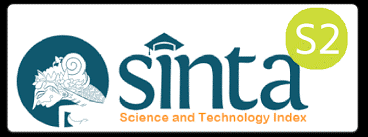Knowledge Relationship and Family Support With Levels Compliance Following the Chronic Disease Management Program (Prolanis) in the Working Area of Kampung Dalam Health Centre Padang Pariaman District, 2018
DOI:
https://doi.org/10.35730/jk.v9i2.359Keywords:
Knowledge, Family Support, ComplianceAbstract
Chronic illness is not easy to deal with not only because of the nature of the disease or its treatment. The government, in this case, has sought to provide various health facilities to realize a healthy and efficient society, as stated in the National Health Insurance program and implemented in a program, namely the chronic disease management program (PROLANIS). The aim of the study was to determine the relationship of knowledge and family support with the level of adherence to the program of managing chronic diseases (prolanis) in the working area of Kampung Dalam Health Center in Padang Pariaman Regency in 2018. This study was a descriptive analytical study using the cross-sectional method. This research was conducted in the work area of Pariaman Health Center, Kota Pariaman from June 29 to July 20 in 2018. The study population was 40 people, consisting of 5 people with diabetes mellitus patients and 35 hypertensive patients. Total sampling technique The results of this study analysis show that 67.5% have low knowledge. 57.5% have low family support. 70% have non-compliance in participating in the Chronic Disease Management Program (PROLANIS). There is a significant relationship between knowledge and compliance following the Chronic Disease Management Program (PROLANIS), with p-value obtained at 0.008. There is a significant relationship between family support and adherence to participating in the Chronic Disease Management Program (PROLANIS), with p-value obtained at 0.018. It is expected that respondents pay more attention to food consumption, try to reduce the consumption of foods that taste salty and excessive fat, regular exercise schedules should be applied every day and more time to take part in the activities held in the Prolanis program.
References
Arikunto, 2012. , Prosedur Penelitian : Suatu Pendekatan Praktik, Edisi. Revisi VI, Jakarta : PT Rineka Cipta
BPJS, 2015. Panduan Klinis Hipertensi BPJS Kesehatan. Jakarta: Badan penyelenggara. Jaminan Sosial (BPJS) Kesehatan
Bruner, 2011. Buku Ajar Keperawatan Medikal Bedah Edisi 8 volume 2. Jakarta EGC
Depkes RI, 2012. Pedoman Kesehatan Dasar. Jakarta.
Dinkes Propinsi Sumbar, 2016. Laporan Tahunan Kesehatan Dasar
Evadewi, 2013. Kepatuhan Mengkonsumsi Obat Pasien. Jakarta : Gramedia
Friedman 2012. Buku Ajar Keperawatan keluarga : Riset, Teori, dan Praktek. Edisi ke-5. Jakarta: EGC
Idris, 2014. Panduan Praktis PROLANIS (Program Pengelolaan Penyakit Kronis). Jakarta
Kemenkes RI (2013. Pedoman Kesehatan Masyarakat.
Soekidjo Notoatmodjo.2012. Metodologi Penelitian Kesehatan. Jakarta : Rineka Cipta
Soekidjo Notoatmodjo.2012. Promosi Kesehatan dan Ilmu Perilaku. Jakarta : Rineka Cipta
Moleong, 2011. Metodologi Penelitian Kualitatif, Penerbit PT Remaja Rosdakarya. Offset, Bandung
Morisky, 2009. Medication Adherence Scale (MMAS-8) pada Pasien Diabetes. Mellitus Tipe 2
Mubarak, 2013. Ilmu Kesehatan Masyarakat. Jakarta: Salemba
Niven, 2012. Psikologi kesehatan : pengantar untuk perawat dan profesi kesehatan lain. Edisi 2. Jakarta : EGC
Palmer dan William, 2007. Tekanan Darah Tinggi. Jakarta: Erlangga
Siti Noor Fatmah (2012. Teori dan Praktek dalam Keperawatan. Jakarta: Salemba
Sutanto, 2011. Basic Data Analysis for Health Research. Jakarta FKUI




